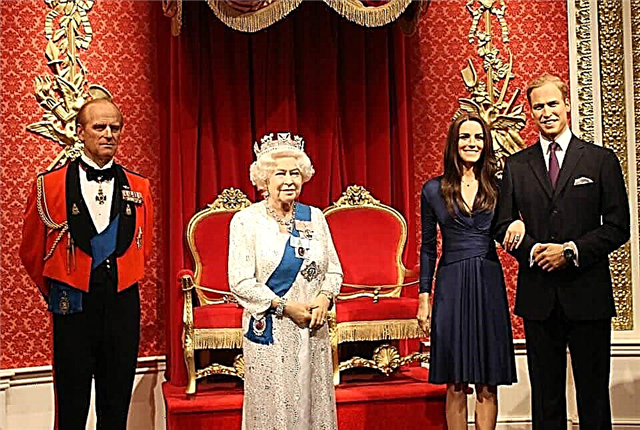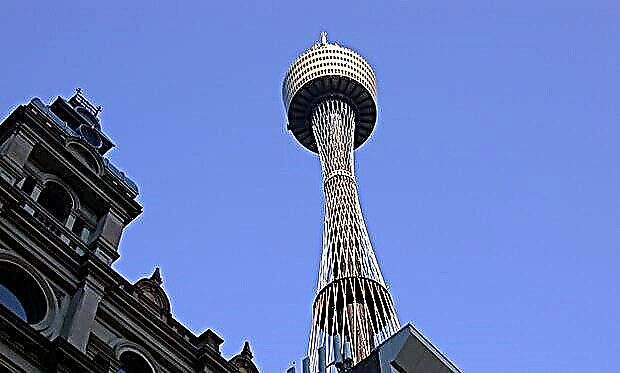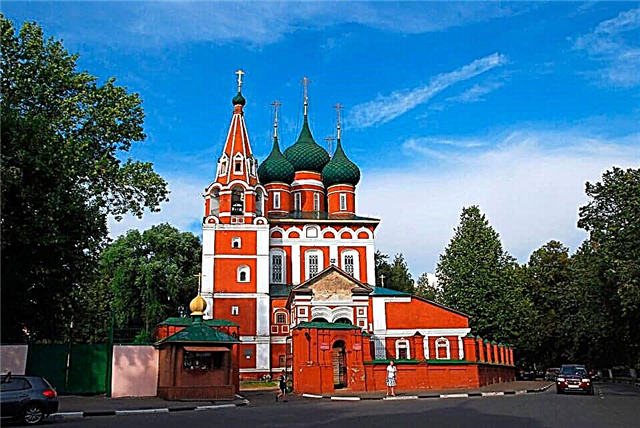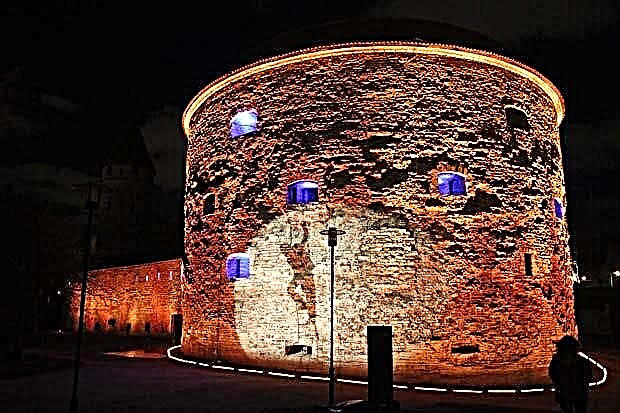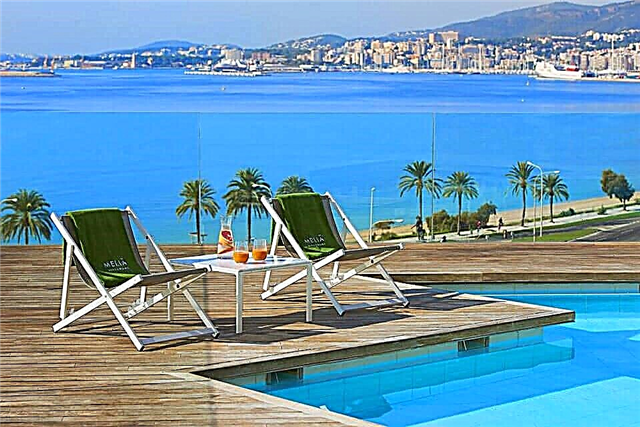Mount Elbrus, striking the imagination, beckoning climbers, ski lovers and fans of outdoor activities, is actually a volcano.
Surprisingly, not everyone knows about this: for most, Elbrus is one of the seven wonders of Russia (according to the 2008 vote), picturesque slopes, on which you can ski down with a "breeze", and virgin, even somewhat "unearthly" beauty of the Elbrus region.

Scientists call Elbrus a stratovolcano, which suggests that from time to time thick lava flows erupt from the conical vent, which, due to their viscosity, do not spread over long distances, but freeze near the place of their release. That is why Elbrus “grows” with each eruption and is currently considered the highest mountain peak in Europe. By the way, the volcano has two peaks: one of them (western) has a height of 5642 meters, and the second (eastern) is 5621 meters. The two peaks are separated by a saddle with a height of 5200 meters and a length of 3 kilometers.
The first conquest of the summit
According to documents that have survived to this day, the first conquest of the eastern summit of Elbrus took place in 1829. The expedition was led by Georgy Arsenievich Emmanuel, who, despite his Hungarian origin, led the Caucasian fortified line. In addition to numerous scientists included in the expedition by the Russian Academy of Sciences, 1000 servicemen and guides who knew secret paths and the least dangerous slopes took part in the ascent to the summit.

Most likely, according to the assumption of modern historians, a person visited the peaks and gorges of Elbrus long before 1829. However, according to the documentation, it is considered that the first conquest of Elbrus is the ascent of a scientific expedition led by Emmanuel.
Volcano name: origin story
Alas, it is not known for certain at the moment where the name Elbrus came from. Most scientific workers are inclined to believe that the name of the mountain comes from the Iranian word "Elburz", literally in Russian it translates as "brilliant or sparkling". In Iran there is a mountain called Elburz, probably for this reason, many associate the origin of the name of the highest point in Europe with the Iranian language.

In fairness, it is worth noting that the rest of the scientists, which, albeit in the minority, claim that the name Elbrus may come from the Armenian or Georgian language. The answer to the question, where did the name of the volcano fascinating with its splendor come from, most likely will not be found: it is necessary to plunge too deeply into the history of mankind to solve this problem.
Battle of Elbrus
During the Great Patriotic War, fierce battles were fought for the peaks of Elbrus, in which the famous German division, which bears the name of the most beautiful mountain flower, "Edelweiss".

The division was staffed exclusively by physically hardy people who lived in mountainous areas, who were able to hit the target from the first shot. The mature age of some of the best soldiers of the Wehrmacht allowed them to fight in the mountains and survive in uninhabited areas, where it was almost impossible to get food, endure severe frosts and strong gusts of wind.
As you know from the history of the Second World War, the battle for the Caucasus began on July 25, 1942. Less than a month later, soldiers from the Edelweiss division occupied the Shelter of Eleven and Krugozor bases, and after a while they conquered the peaks of Elbrus, on which they hoisted flags with a swastika. It would seem that a feat was accomplished, but the ascent of the German soldiers enraged Hitler. “Crazy, deranged people, stupid climbers!

While the soldiers of the Wehrmacht are waging a fierce struggle for every square kilometer of the Caucasus, they decided to "play". These climbers, who climbed Elbrus for the sake of their own pride, must be put under a tribunal! ”Hitler shouted in fury. “Why do we need this unnecessary naked peak? They are not aware of what they are doing. Our flags should hang on the buildings of Sukhumi, and not develop where even birds cannot see them, ”A. Speer recorded these words of Adolf Hitler in his diary.
Stalin, apparently, thought quite differently. After the last German units were expelled from the Caucasus at the end of winter, Soviet soldiers conquered the peaks of Elbrus again... The flags with the swastika were destroyed, and the flags of the USSR were proudly displayed on the western and eastern summits.

The volcano only slumbers
Elbrus, as mentioned above, is a Mecca for rock climbers, climbers and skiers. Tourism brings the lion's share of income to the local budget in Kabardino-Balkaria. Therefore, according to some scientists, the authorities are silent about the danger that awaits not only tourists, but also local residents, whose houses are located near the volcano. "Elbrus can wake up at any moment, the eruption will be the most powerful in its strength!", - say experts, relying on a number of their studies.
Lev Denisov expresses particular concern, calling on the authorities to reconsider their policies and reflect on what they are investing huge amounts of money into. “A restless volcano can destroy the entire infrastructure of the region in a few hours and take the lives of thousands of people,” Denisov said in his address. In addition to a possible eruption, the so-called "pulsating glaciers" are especially dangerous. It was they who led at one time to the tragedy in the Karmadon Gorge.

Monument to the Heroes of the Defense of the Elbrus Region
However, neither the authorities of Kabardino-Balkaria, nor high-ranking officials from the Russian Emergencies Ministry want to listen to the scientist's arguments so far. Opponents of Denisov say: “Several centuries may pass before the eruption, so far we have not seen any cause for concern”. Naturally, in this context, the word “may” scares. After all, this does not exclude that Elbrus may "wake up" in the very near future. Who will be right, Lev Denisov with his group of researchers, or his opponents - only time will tell. While in the Elbrus area, you should never forget about your own safety and strictly follow the instructions of the instructor. It is worth remembering that people are constantly dying and missing in the gorges and on the slopes of the mountain: everyone knows that in 2002, during the descent of the glacier in the Karmadon Gorge under the name "Kolka", the most popular actor and director Sergei Sergeevich Bodrov disappeared.

"I stand at the top, I am happy and dumb ..."
Thanks to the decree of the government of the Russian Federation, with the active support of the authorities of Kabardino-Balkaria, the tourism infrastructure is developing in the Elbrus region by leaps and bounds. Convenient tourist centers, hotels with "luxury" rooms, ultramodern lifts, rental of modern mountain and skiing equipment are just a small part of what a tourist who has come to the highest peak in Europe can count on.
You can conquer one of the mountain peaks, from which a truly stunning view opens up, on one of the expeditions. They are constantly organized here by companies that have received a special license for this type of activity. Climbing Elbrus always takes place under the guidance of a professional climber who knows all the subtleties and nuances of conquering a mountain peak.

Thanks to the training of these people, climbing Elbrus has become practically safe. However, before deciding to climb the highest mountain in Europe, you should soberly assess your strength. For a person with poor health, such a journey can end tragically. Although, almost all expeditions are equipped with radio communication with special stations.In the event of any dangerous situation, a helicopter rises from a special platform with experienced rescuers on board. Before the ascent, the leaders of the group once again try to determine the physical condition of each participant and, in case of any doubts about his endurance, they recommend postponing the conquest of the peak, but it is better to enjoy the beauty of the Elbrus region on this trip, which is rather difficult to describe in words.
Difficult climb, the smell of hydrogen sulfide, cold, piercing wind, weakness that almost never goes away - it seems that the volcano is opposing the climber.

But the difficulties remain behind, and the climber finds himself at the highest point of the Old World, at the peak of the 7th miracle of Russia. Standing on the top of Elbrus, no matter western or eastern, still not getting used to the thin air, but numb from the splendor that surrounds this majestic mountain, you begin to understand the words from the song of V.S. Vysotsky, where he says that he is a little jealous of those who have yet to conquer the summit.
Attraction rating:

